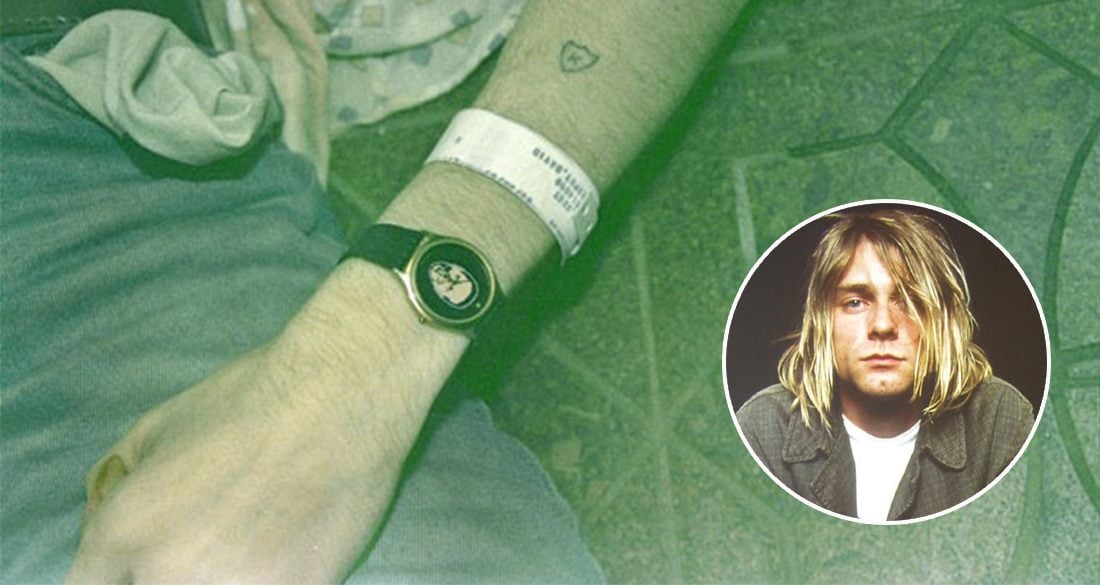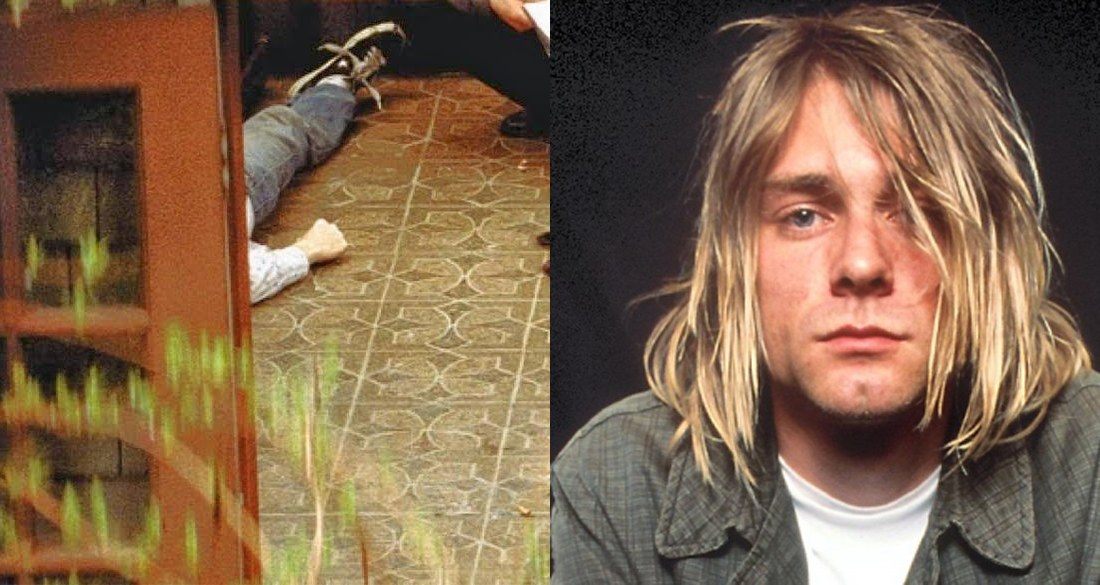Kurt Cobain Suicide: A Heartbreaking Legacy That Still Resonates Today
April 8, 1994 became a date etched in the hearts of millions when the world lost Kurt Cobain, the voice of a generation. His tragic death sent shockwaves through the music industry and left fans grappling with the loss of a cultural icon. The story of Kurt Cobain's suicide isn't just about a rock star's untimely end; it's about mental health struggles, fame's burden, and the lasting impact of a life cut short. As we dive into this heavy topic, let's explore the layers behind the headlines and understand the man behind the myth.
When you think about the '90s grunge scene, Kurt Cobain's name instantly comes up. He wasn't just any musician; he was the face of an entire movement that redefined rock music. But behind the electric guitars and raw vocals lay a deeply personal battle—one that ultimately led to his tragic demise. Today, we're here not just to recount the facts but to unpack the complexities surrounding his death.
This article dives deep into the circumstances around Kurt Cobain's suicide, exploring both the public narrative and the quieter, more personal details that often get overshadowed by the media frenzy. We'll also touch on how his legacy continues to inspire conversations about mental health and the pressures of fame. So grab a seat, because this is more than just a story—it's a journey through time, music, and the human soul.
- Elevator Mansion Luis Freitag Jacob Rott Co Was Du Wissen Musst
- Saramart Gutscheine Sichern Top Angebote Rabatte Im Mai 2025
Table of Contents
- Kurt Cobain Biography
- Early Life and Influences
- The Grunge Phenomenon
- Mental Health Struggles
- Addiction and Pain
- The Tragic End
- Kurt Cobain's Lasting Legacy
- Impact on Music and Culture
- Raising Awareness for Mental Health
- Final Thoughts
Kurt Cobain Biography
Before we delve into the harrowing details of Kurt Cobain's final days, let's take a moment to remember the man who became an icon. Born on February 20, 1967, in Aberdeen, Washington, Kurt Donald Cobain grew up in a small town where his love for music began early. His life wasn't without its challenges, but those struggles shaped him into the artist he became.
Biographical Details
| Full Name | Kurt Donald Cobain |
|---|---|
| Date of Birth | February 20, 1967 |
| Place of Birth | Aberdeen, Washington, USA |
| Occupation | Singer, Songwriter, Guitarist |
| Band | Nirvana |
| Date of Death | April 5, 1994 |
| Place of Death | Seattle, Washington, USA |
These simple facts barely scratch the surface of who Kurt Cobain was. To truly understand his impact, we need to look at his journey from a small-town kid to a global superstar—and everything that came with it.
Early Life and Influences
Kurt's early years were marked by a mix of creativity and turbulence. Growing up in Aberdeen, he was surrounded by a tight-knit community but also experienced the pain of his parents' divorce when he was just eight years old. This emotional upheaval would later fuel much of his songwriting. As a kid, he was obsessed with drawing and art, often doodling pictures of musicians he admired.
- Dann Van Ling Alles Ber Den Partner Von Hans Klok
- Dubai Schokolade Der Hype Die Sorten Wo Du Sie Findest
His love for music started early, too. Kurt's uncle Chuck Fradenburg introduced him to records by the Beatles, the Monkees, and other classic bands. These influences stayed with him throughout his career, even as he pushed boundaries with Nirvana's sound. But it wasn't all smooth sailing—Kurt struggled with feelings of isolation and depression even as a teenager, themes that would echo in his later work.
The Grunge Phenomenon
When Nirvana burst onto the scene with their 1991 album "Nevermind," they didn't just create a hit—they ignited a cultural revolution. Grunge, with its raw, unpolished sound, resonated with disenchanted youth worldwide. Tracks like "Smells Like Teen Spirit" became anthems for a generation seeking authenticity in a world dominated by polished pop.
But fame came with its own set of challenges. Suddenly thrust into the limelight, Kurt found himself at the center of a media storm. The pressure to maintain the image of a rebel while dealing with personal demons took its toll. In interviews, he often expressed discomfort with the attention, saying things like, "I don't want to be the spokesperson for Generation X." And yet, that's exactly what he became.
Mental Health Struggles
Mental health was a recurring theme in Kurt's life, long before it became a mainstream topic of discussion. From childhood, he battled anxiety, depression, and chronic pain, which only intensified as his fame grew. Despite his outward confidence on stage, privately, Kurt was often overwhelmed by these internal battles.
Studies show that individuals in high-pressure environments, especially those in the entertainment industry, are more prone to mental health issues. For someone as sensitive as Kurt, the constant scrutiny and expectation could feel suffocating. He once said, "Fame is a monster that feeds on itself," a sentiment many artists can relate to today.
Addiction and Pain
Alongside his mental health struggles, Kurt also faced severe physical pain due to chronic health issues, likely related to Crohn's disease. To cope, he turned to heroin, a decision that would haunt him—and his loved ones—for years. Addiction became a vicious cycle, one that proved difficult to break despite multiple attempts at rehabilitation.
Heroin use, particularly among musicians, has been documented extensively in studies. It's often seen as a coping mechanism for those dealing with immense stress and pain. Unfortunately, for Kurt, it became both a crutch and a curse, ultimately contributing to his tragic end.
The Tragic End
On April 5, 1994, Kurt Cobain was found dead in his Seattle home, the victim of a self-inflicted gunshot wound. The news sent shockwaves around the world, leaving fans and peers alike grappling with disbelief and grief. His suicide note, addressed to his imaginary childhood friend Boddah, revealed a man exhausted by life's weight and the demands of fame.
While the circumstances surrounding his death have been debated endlessly, one thing remains clear: Kurt Cobain's struggles were real, and they were overwhelming. His passing served as a stark reminder of the dangers of untreated mental illness and addiction.
What Can We Learn?
- Seek help early if you're struggling mentally or emotionally.
- Break the stigma around mental health discussions.
- Recognize the signs of addiction and offer support to those affected.
Kurt Cobain's Lasting Legacy
Even decades after his death, Kurt Cobain's influence continues to shape the music industry and popular culture. His raw, honest approach to songwriting inspired countless artists across genres. Bands like Pearl Jam, Foo Fighters, and many others cite him as a major influence.
But his legacy extends beyond music. Kurt Cobain's openness about his struggles helped normalize conversations about mental health, paving the way for future generations to seek help without fear of judgment. His story serves as both a warning and a call to action, urging us to prioritize mental well-being.
Impact on Music and Culture
The grunge movement, spearheaded by Nirvana, changed the landscape of rock music forever. It brought a new authenticity to the genre, proving that you didn't need flashy production or glamorous personas to make great music. Instead, it was about connecting with your audience on a deeper, more genuine level.
Culturally, Kurt Cobain became a symbol of rebellion and individuality. His fashion sense—flannel shirts, ripped jeans, and combat boots—became synonymous with the '90s grunge aesthetic. More importantly, his willingness to challenge societal norms encouraged others to do the same.
Raising Awareness for Mental Health
One of the most significant aspects of Kurt Cobain's legacy is his role in raising awareness for mental health issues. In recent years, organizations like the American Foundation for Suicide Prevention (AFSP) and the National Alliance on Mental Illness (NAMI) have worked tirelessly to combat stigma and provide resources for those in need.
Statistics show that suicide rates remain alarmingly high, particularly among young people and artists. By sharing Kurt's story, we hope to inspire others to seek help and support one another. Remember, it's okay to not be okay—and reaching out for help is a sign of strength, not weakness.
Final Thoughts
Kurt Cobain's suicide was a tragedy that shook the world, but it also opened doors for important conversations about mental health, addiction, and the pressures of fame. As we reflect on his life and work, let's honor his memory by continuing to advocate for those who struggle in silence.
So, what can you do? Start by checking in on your friends and loved ones. Encourage open discussions about mental health. Share resources and support systems with those who might need them. And most importantly, remember that every life has value and deserves care.
Thanks for taking the time to read this article. If you found it helpful or moving, please share it with others. Together, we can keep Kurt's legacy alive—not just as a musician, but as a reminder of the importance of compassion and understanding.
- Gay Dating Mehr Was Sie Ber Blowers Co Wissen Sollten
- Donnerstag Gre Wnsche Mehr Alles Fr Deinen Tag

Kurt Cobain's Suicide Did He Really Kill Himself Or Was He Murdered?

Kurt Cobain's Suicide Did He Really Kill Himself Or Was He Murdered?

Kurt Cobain suicide note shirts pulled from online shop 6abc Philadelphia